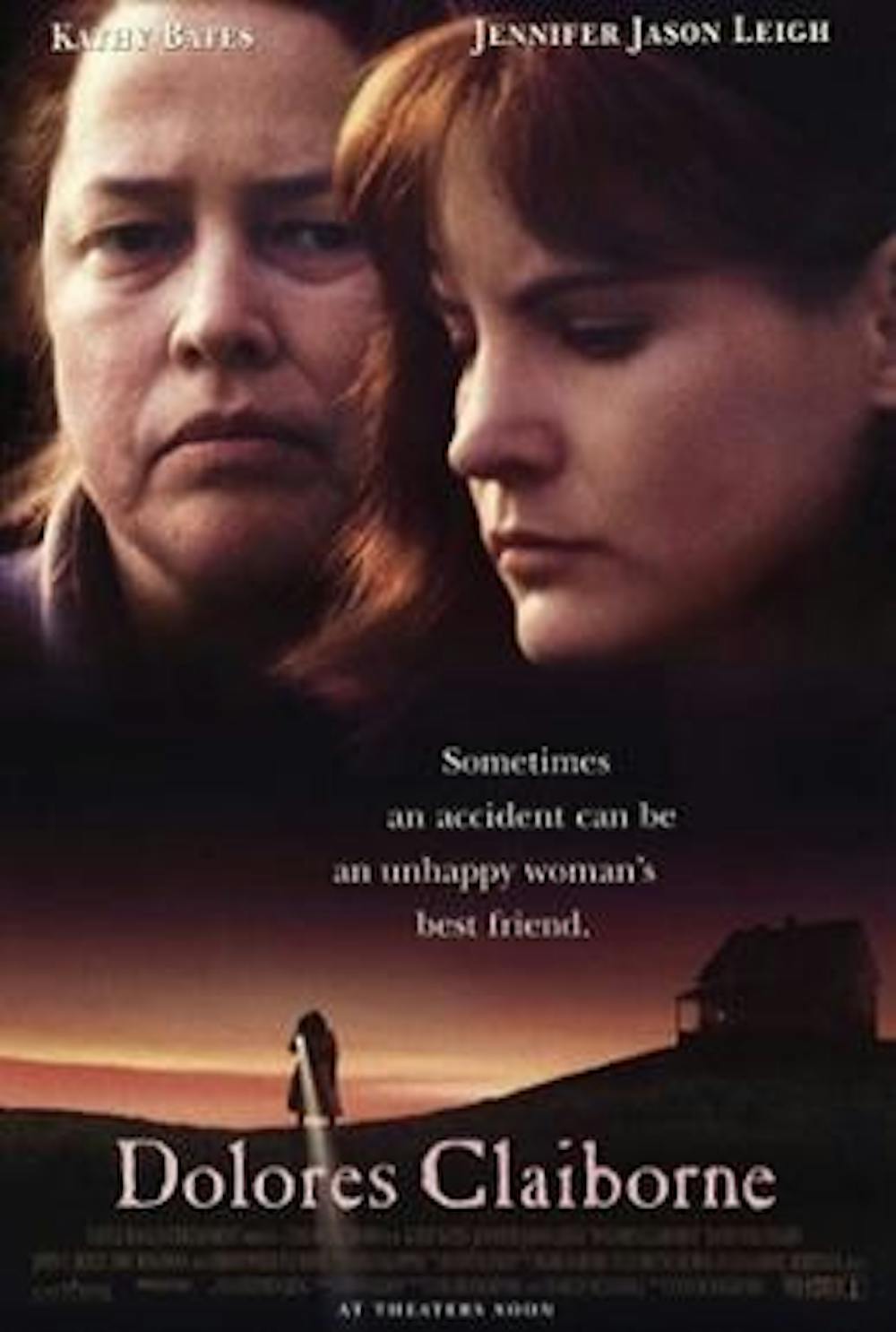We have been incarcerated at Shawshank Prison. We have stayed the winter at the Overlook Hotel. We have been entertained by Pennywise, the Dancing Clown. However, almost none of us have visited Little Tall Island off the coast of Maine. Of the many Stephen King novels and their ensuing film adaptations, at least five come to a person’s mind before “Dolores Claiborne.”
Published in 1993, then quickly adapted for the screen in 1995, “Dolores Claiborne” stars Kathy Bates in the title role and was her third collaboration with King. Her other works with him included the 1994 miniseries “The Stand” and the 1990 film “Misery.” In the latter, Bates won the Academy Award for Best Actress for playing villainous psychopath Annie Wilkes.
Not many would deny that Bates’ character in “Misery” was an iconic, career-defining performance. However, it is with this performance that Bates was truly able to shine in her ability to uncover a much more complex character. Bates has even stated in an interview with Anderson Cooper that Dolores Claiborne was her favorite character that she has played.
In this story, we see Claiborne accused of murdering her boss and elderly socialite Vera Donovan (Judy Parfitt). Receiving a fax at her upscale journalism job in New York City about the death and subsequent investigation, Claiborne’s estranged daughter (Jennifer Jason Leigh) reluctantly travels to Maine in order to help her mother. But upon her arrival, she finds Detective John Mackey, played by Christopher Plummer, with an eagerness for solving the suspicious death of Claiborne’s husband that occured 18 years prior. Mackey, believing that Claiborne is the culprit in both deaths, is eager to indict Bates’ character.
The drama that follows challenges your morals. What happened to Vera Donovan? What happened to Claiborne’s husband 18 years ago? Was she responsible? These questions are answered through a slow and subtle retelling of events by Claiborne herself. The dark secrets held by every character haunt the audience throughout the film as they are slowly told to give us the full picture.
There are four elements of the film that make it successful — the story idea, the score and the performances given by Parfitt and Bates.
The story is one that is unexpected, controversial and dramatic. Each secret pertinent to this story tells us more and more about what people are capable of doing under the right circumstances. But it will also make viewers question what they might do in similar circumstances.
Danny Elfman did the score, a household movie composer name whose enormous discography includes the scores of “The Nightmare Before Christmas,” “Alice in Wonderland,” “Edward Scissorhands” and “Beetlejuice.” He’s at his best when he’s composing for creepy movies, and few are creepier than “Dolores Claiborne.”
Parfitt’s and Bates’ performances command attention. Vera Donovan, Parfitt’s character, is unapologetic in her cruelty as an employer, but holds a dark personal secret which is a driving force of the plot. Parfitt has a particular scene late in the movie that will linger in viewers’ minds long after the credits roll. And as has already been said of Bates, this is a film where she truly shines.
Unlike her “Misery” character, Bates takes on Claiborne as a woman with an outer grit who has no personal achievements, family or friends to support her. Yet, through flashbacks, she is able to show the journey that presents the cold, mean Claiborne of the film and all of her past lives.
Everything else about this film — execution, script and other performances — is frankly underwhelming, which is quite unfortunate given the elements that do work. But these four elements which have been discussed make this film adaptation worth a viewing and a story that deserves a respectable remake.
It has been proven time and time again that King’s work can be easily adapted to the screen successfully both in terms of acclaim and remembrance in pop culture. Most recently, the remake of “IT” terrified audiences worldwide, while Netflix adapted lesser-known works such as “Gerald’s Game” and “1922.” The interest and ability to make great King products is obtainable and has proven time and again to be financially successful.
Hollywood and the public didn’t appreciate “Dolores Claiborne” the first time it was made. Maybe with the right director, screenwriter and a star that captures the depth accomplished by Bates, a remake could go a long way.
Forgotten Films is part of a series in which the author breaks down films that have lost significance in the pop culture landscape, but still deserve attention due to their history, impact and lasting importance. This biweekly column is spoiler-free.







